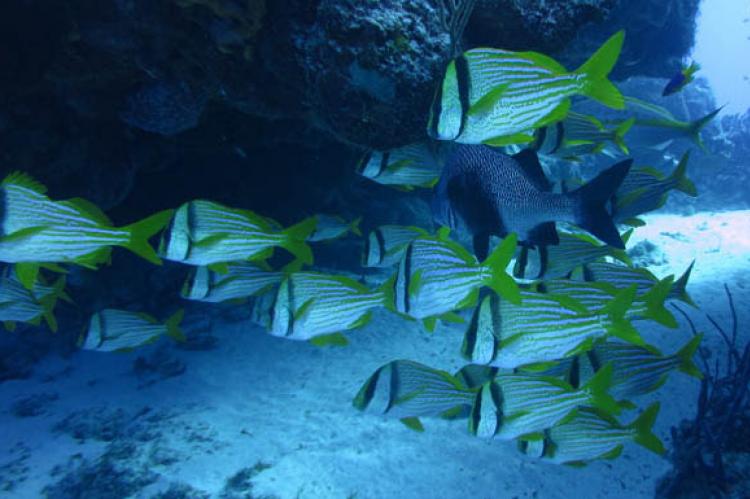Larger reefs can help protect fish from climate change
Although the reef fish in the Caribbean are as affected by climate change as the fish in other parts of the world, a study suggests that having larger reef areas may help protect the population from the impact of ocean warming.
Focussing their study on the reefs in the exclusive economic zones (EEZ) of nine Caribbean countries, a research team from the University of British Columbia's Institute for the Oceans and Fisheries assessed how warmer ocean temperatures affected fish species that were essential to local fisheries. They also studied how such impacts was affected by the size of the reefs.
Their findings was published in the journal Marine Ecology Progress Series.
After studying seawater temperature and fisheries records dating all the way to the 1970s, they found that the Caribbean Sea was increasing in temperature, and that fish which liked cooler temperatures were decreasing in dominance in the catch. In addition, "they also found that the change in fish composition was slower in countries with larger coral reefs compared to countries with smaller coral reefs," according to the news release.
This led the researchers to conclude that changes in fish community can be lowered by 30 to 80 percent if the reef area was doubled.
“With a small degree of warming, some fish may be able to acclimate but they need suitable habitat to grow and thrive,” said first author Ravi Maharaj, a PhD candidate at the Institute.
“More refuge can be found in bigger reefs, however, with the addition of habitat loss due to pollution, coral bleaching, damage from the storms that frequent the area as well as unmanaged fishing pressures, such fish refuge is becoming rarer.”
As most of the fisheries in the Caribbean are small-scale, subsistence-based and unmanaged, the researchers propose that policy-makers focus on habitat protection and fisheries management in the area.
“Our results show that increasing the resilience of fish populations to climate impacts will involve managing for the broader ecosystem, particularly through protection and restoration of critical fish habitats," said senior author William Cheung, associate professor at the Institute.


